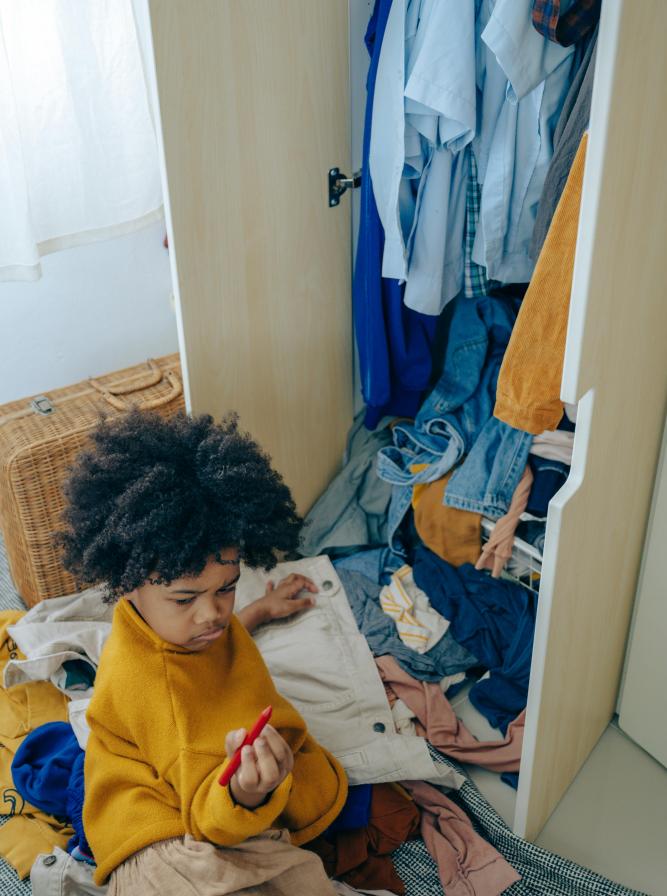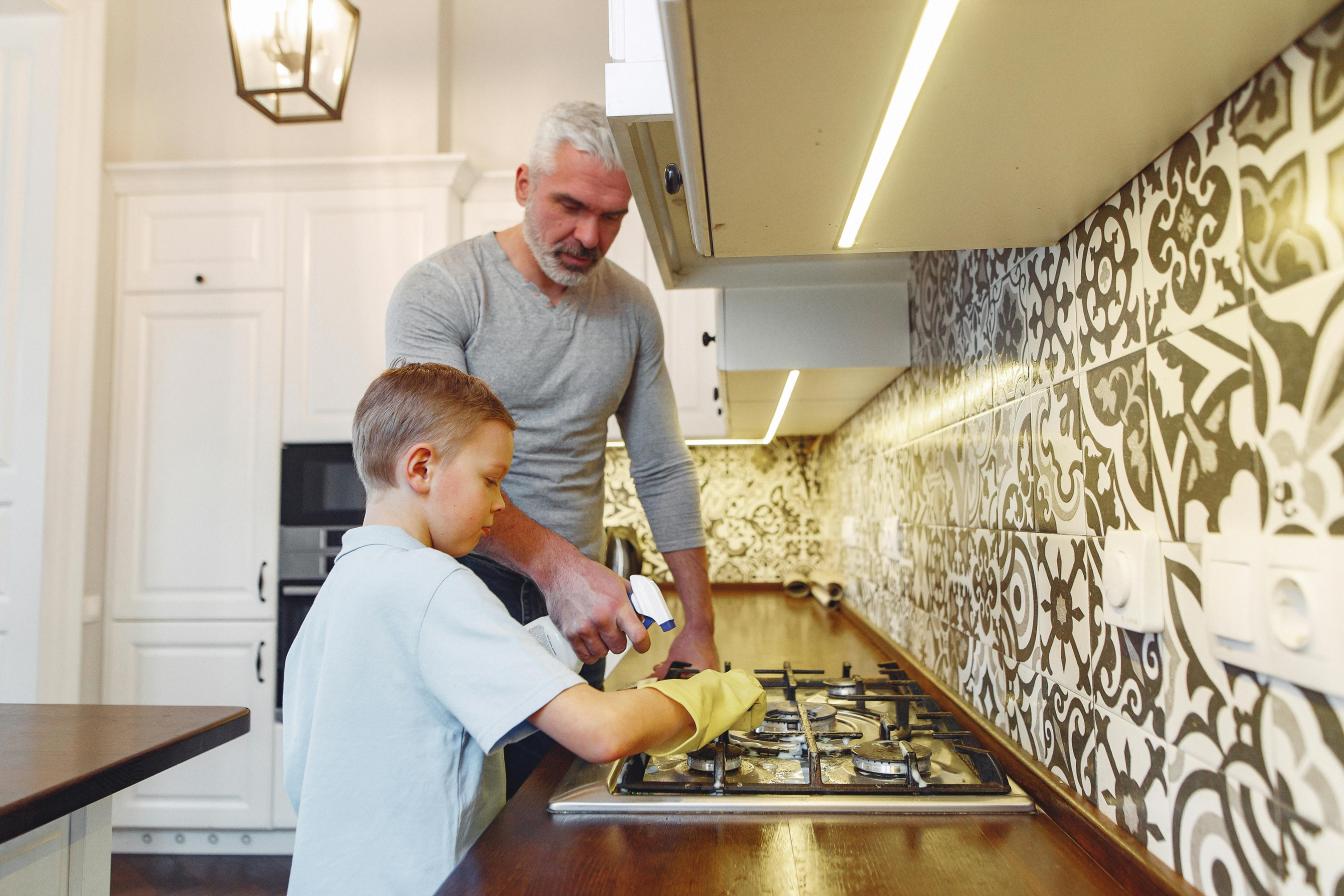
How to Fix Your Bad Behavior
Behavior is a fundamental aspect of the human experience. It dictates our interactions, influences our personal and professional lives, and shapes our overall well-being. However, not all behavior is beneficial. Some behaviors can be maladaptive, causing harm to ourselves and others. In this article, we’ll explore various strategies to fix bad behavior in adults, children, relationships, and beyond. By the end, you’ll be equipped with actionable steps to make positive changes in your life.
How to Stop Bad Behavior in Adults
Bad behavior in adults can manifest in various forms, from procrastination and impulsivity to aggression and neglect. The first step to addressing this issue is awareness. Reflect on your actions and their consequences, and be honest with yourself about the impact they have on your life and those around you.
Once awareness is achieved, the next step is identifying the triggers. What events, emotions, or environments precipitate your bad behavior? For example, if stress at work leads to angry outbursts at home, understanding this connection can help you develop strategies to manage your stress more effectively.
Finally, implement change by setting realistic goals. Small, incremental changes are often more sustainable than attempting to overhaul your behavior overnight. Utilize tools such as journaling, meditation, and therapy to support your journey towards better behavior.
How to Stop Bad Behavior in a Child
Children are constantly learning and developing, and sometimes they exhibit behaviors that are less than desirable. To stop bad behavior in children, the first step is to ensure consistency. Children need clear and consistent boundaries to understand what is acceptable behavior.
Using positive reinforcement is another effective method. Acknowledge and reward good behavior to encourage its recurrence. This can be as simple as verbal praises or a small reward, like extra playtime or a favorite treat.
Finally, simulate the behavior that you want to observe. Children are great imitators; if they see you handling situations with calmness and respect, they are more likely to mirror those behaviors. Consistency, positive reinforcement, and modeling behavior can significantly reduce bad behavior in children.
How to Change Bad Behavior in a Relationship
Relationships are complex, and sometimes our behaviors can strain the bond we have with our partners. To change bad behavior in a relationship, start with open communication. Discuss the behaviors that are causing issues and how they make both parties feel. Effective communication can pave the way for mutual understanding and cooperation.
Next, identify the underlying causes. Sometimes, bad behavior in relationships stems from unmet needs or unresolved issues. Counseling can be an invaluable tool in uncovering and addressing these root causes.
Finally, committed to change. Both partners need to be willing to put in the effort to develop healthier habits. This might involve setting specific goals, such as spending more quality time together or practicing active listening during disagreements. Mutual commitment is key to making lasting changes in a relationship.
How to Stop a Bad Habit Permanently
Breaking a bad habit is challenging but not impossible. The first step is to identify the habit and its impact on your life. Awareness is very crucial, as it allows you to understand why you engage in the habit and what triggers it.
Once you understand your triggers, develop a strategy to manage or avoid them. This could involve replacing the bad habit with a more positive one. For instance, if you tend to snack mindlessly while watching TV, you could replace this habit with a healthier one, such as drinking water or doing light stretches.
Finally, seek guidance. You should be sharing your goal with friends or family who can provide encouragement and hold you accountable. Support groups and professional counseling can also offer valuable resources and guidance.
3 Steps to Changing Bad Habits
- Awareness: Recognize the habits you want to change and understand their impact on your life.
- Avoidance: Identify the triggers and develop strategies to manage or avoid them.
- Accountability: Seek support from friends, family, or professionals to help you stay committed to your goals.
List of 10 Negative Behaviors You Should Stop.
- Procrastination
- Impulsivity
- Aggression
- Neglect
- Manipulation
- Dishonesty
- Self-sabotage
- Laziness
- Overeating
- Substance abuse
How to Stop Bad Habits and Addictions
Addictions are more severe forms of bad habits and require a more intensive approach.The first step is to pay attention to the problem. Denial can be a significant barrier to change.
Professional assistance is often required. Therapist, counselors, and support groups can provide the tools and support needed to overcome addiction. Cognitive-behavioral therapy (CBT) is exceptionally successful in treating different types of addiction.
Finally, create a long-term plan. Recovery from addiction is a lifelong process, and having a plan for maintaining sobriety and preventing relapse is crucial. This can include ongoing therapy, support groups, and self-care routines.
How to Stop Negative Behavior
Stopping negative behavior involves a multi-faceted approach. First, self-reflection is vital. Understand the reasons behind your negative actions. Are they rooted in stress, insecurity, or unresolved trauma?
Next, actively work on changing these behaviors by setting specific, achievable goals. Small, consistent effort often yield better result than drastic changes. Techniques like self-compassion and concentration can be extremely useful.
Finally, seek feedback from those around you. Sometimes, we are not fully aware of our negative behaviors, and constructive criticism from friends and family can provide valuable insights and motivate us to change.
What Corrects Bad Behavior
Correction of bad behavior involves a combination of awareness, education, and support. Being aware of the behavior and its consequences is the first step.
Education about the impact of the behavior and learning new strategies to cope can help in making the necessary changes. This can include professional counseling, self-help books, or workshops.
Support from friends, family, and professionals can provide the encouragement and accountability needed to stick to new behaviors and habits.
How to Fix Behavior Problems
Fixing behavior problems starts with identifying the issues. Reflect on the behavior and understand its impact on your life and those around you. Self-awareness is crucial.
Next, set specific, measurable goals to change the behavior. For instance, if procrastination is the issue, set small daily tasks to gradually build a habit of productivity.
Finally, track your progress and adjust your strategy as you need it. Celebrate modest triumphs while learning from setbacks. Continuous self-improvement and adaptation are key to fixing behavior problems.
How to Tackle a Bad Behavior
Tackling bad behavior involves a proactive approach. Start by recognizing the behavior and understanding its triggers. What conditions or emotions trigger the behavior?
Implement tactics for managing or avoiding these triggers. This could involve developing new habits, seeking professional help, or practicing mindfulness techniques.
Remaining constancy is a must. Consistently applying your strategies and reflecting on your progress can lead to lasting change. Remember, change take’s time and effort, so be patient with yourself.
How Do I Fix Bad Behavior in Myself?
Fixing bad behavior in yourself starts with self-awareness. Reflect on your actions and their impact on your life and those around you. Honest self-assessment is crucial for change.
Next, set realistic goals for change. Identify specific behaviors you want to improve and create a plan to address them. This could involve setting up daily or weekly goals and tracking your progress.
Seek help from friends, family, and experts in the field. They can provide valuable feedback, encouragement, and accountabilities to help you stay on track.
How Do I Fix My Behavior That I Decovered?
Fixing your behavior involves a combination of self-awareness, goal setting, and support. Start by reflecting on your actions and their impact. Self-awareness is the cornerstone of change.
Set specific, achievable goals to improve your behavior. Break down the goal’s into manageable steps and track your progress regularly. Small, regular efforts can lead to long-term transformation.
Seek support from friends, family, and experts. They can actually provide you with valuable feedback, encouragement, and accountabilities to help you stay motivated and committed to your goals.
How Do I Change My Behavior from Bad to Good?
Changing behavior from bad to good involves a deliberate and consistent effort. Start by identifying the bad behaviors and understanding their impact on your life and those around you.
Set specific, realistic goals to change these behaviors. Create a plan that includes small, manageable steps to achieve these goals. Monitor your development and celebrate tiny triumphs.
Seek help from friends, family, and practitioners. They can provide valuable feedback, encouragement, and accountabilities to help you stay on track and motivated.
How Do I Control My Behavior?
Controlling your behavior requires self-awareness and self-discipline. Start by understanding your actions and their impact. Reflect on the triggers and emotions that lead to the behavior.
Develop strategies to manage or avoid these trigger. This could involve mindfulness techniques, setting boundaries, or seeking professional help.
Consistency is key. Regularly practice self-control and monitor your progress. Remember, change take time, so be patient and persistent.
How Do You Fix Unwanted Behavior?
Fixing unwanted behavior involves a combination of self-awareness, goal setting, and support. Start by reflecting on your behavior and understanding its impact. Self-awareness is crucial for change.
Set specific, realistic goals to improve the behavior. Break down the goals into manageable step and track your progress. Small, regular efforts can lead to long-term transformation.
Seek help from friends, family, and experts in the field. They can provide valuable feedback, encouragement, and accountabilities to help you stay motivated and committed to your goals.
Why Do I Have Bad Behavior?
Bad behavior often stems from underlying issues such as stress, insecurity, or unresolved trauma. Reflect on your actions and identify the possible root causes. Being aware of ourselves is the first step toward change.
External factors such as environment, relationships, and life experiences can also influence behavior. Understanding these factor can help you develop strategies to manage or avoid them.
Seeking professional help can provide valuable insight and support in understanding and addressing the underlying cause of bad behavior.
How Do You Punish Bad Behavior?
Punishment is not always the best approach to addressing bad behavior. Instead, it’s better you focus on positive reinforcement and setting clear boundaries. Identify the behavior you want to change and develop a plan to address it.
Positive reinforcement involves acknowledging and rewarding good behavior, encouraging its recurrence. This can be more effective than punishment in promoting lasting change.
If punishment is necessary, ensure it is fair and appropriate for the behavior. Avoid harsh or punitive measures, as they can lead to resentment and further negative behavior.
How Can I Make My Behavior Good?
Making your behavior good involves self-awareness, goal-setting, and support. Start by reflecting on your actions and understanding their impact on your life and those around you.
Set specific, realistic goals to improve your behavior. Create a plan that includes small, manageable steps to achieve these goals. Monitor your development and celebrate tiny triumphs.
Seek help from friends, family, and trained professionals. They can give significant criticism, consolation, and accountability to help you stay on track and motivated.
How to Quit a Bad Habit
Quitting a bad habit involves a structured approach. Start by recognizing the habit and understanding its impact on your life. Self-awareness constitutes an essential for change.
Develop a strategy to replace the bad habit with a positive one. For instance, if you tend to snack mindlessly, replace it with drinking water or doing light exercises.
Seek help from friends, family, and qualified professionals. Support group and counseling can provide valuable resource and encouragement to help you stay committed to your goal.
How Do I Stop Myself from Misbehaving?
Stopping yourself from misbehaving involves self-awareness and self-control. Recognize the trigger and emotions that lead to the misbehavior. Understanding these factor can help you develop strategies to manage or avoid them.
Practice mindfulness technique to stay present and aware of your actions. Mindfulness can help you control impulsive behaviors and make more conscious choices.
Seek help from friends, family, and qualified individuals. They can give significant criticism, consolation, and accountability to help you stay on track and motivated.
How to Break a Habit in 21 Days
Breaking a habit in 21 days involves consistent effort and commitment. Start by identifying the habit you want to change and understanding its impact on your life.
Create a specific, realistic plan to replace the habit with a positive one. Break down the plan into manageable steps and track your progress daily.
Seek support from friends, family, or professionals to stay motivated and accountable. Remember, consistency is key to breaking a habit and forming a new one.
What is the Solution to Negative Behavior?
The solution to negative behavior involves self-awareness, goal-setting, and support. Start by reflecting on your actions and understanding their impact on your life and those around you.
Set specific, realistic goals to change the negative behavior. Create a plan that includes small, manageable steps to achieve these goals. Monitor your development and celebrate tiny triumphs.
Seek help from friends, family, and those with expertise. They can give important input, consolation, and accountability to help you stay on track and motivated.
How Do You Respond to Bad Behavior?
Responding to bad behavior involves a balanced approach. Start by understanding the reasons behind the behavior. Is it rooted in stress, insecurity, or unresolved issues?
Address the behavior calmly and constructively. you should use positive reinforcement to acknowledge and reward for good behavior, and set clear boundaries to discourage negative behavior.
If necessary, seek professional help to address underlying issues and develop effective strategies for managing bad behavior.
How Do You Correct Someone’s Behavior?
Correcting someone’s behavior involves a respectful and constructive approach. Start by understanding the reasons behind the behavior. Is it rooted in stress, insecurity, or unresolved issues?
Address the behavior calmly and constructively. Utilize encouraging feedback to recognize and remunerate appropriate conduct, and set clear boundaries to discourage negative behavior.
Encourage open communication and provide support to help the person understand and address the underlying issues. If necessary, seek professional help to develop effective strategies for behavior change.
FAQs
What role does self-awareness play in changing behavior?
Self awareness is very crucial, as it allows you to recognize and understand your behaviors and their impact, making it the first step towards change.
How can positive encouragement be applied effectively?
Positive reinforcement involves acknowledging and rewarding good behavior, encouraging its recurrence. It can be as simple as verbal praises or a small reward.
Can professional help really make a difference in changing bad behavior?
Yes, professionals can really help, such as therapy or counseling, which can provide valuable insights, support, and strategies to address and change bad behavior effectively.
What if my bad behavior is rooted in past trauma?
Understanding and addressing past trauma often requires professional help. Therapists can provide specialized approaches to help you heal and develop healthier behaviors.
How long does it typically take to change a bad habit?
While it can vary for individuals, many experts suggest it takes about 21 days of consistent effort to break a habit and form a new one.
Conclusion
Changing bad behavior, whether it’s in adults, children, relationships, or habits, is a challenging but achievable goal. It requires self-awareness, goal-setting, and support. By understanding the underlying causes of bad behavior and developing strategies to manage or avoid triggers, you can make lasting change that improves your quality of life and relationships. Remember, consistency and patience are key to making positive changes. Seek support from friends, family, or professionals for you to stay motivated and accountable on your journey towards better behavior.
Citations to this article:
- washingtonpost, 8 ways to change a child’s ‘bad’ behavior, washingtonpost, August 29, 2024
- familydoctor.org, How To Change Your Childs Behavior – Temper Tantrums, familydoctor.org, August 27, 2024, August 29, 2024
- Healthline, Problem Behavior: Symptoms, Causes, Treatments and More, Healthline, November 01, 2019, August 29, 2024
- Quora, What are the ways to change bad behavior permanently?, Quora, August 29, 2024
- wikiHow, 3 Ways to Change Behavior, wikiHow, August 29, 2024
- How to Break Bad Habits and Change Behaviors, www.heart.org, December 14, 2023, August 29, 2024
- Deborah Easton, 5 Guidelines for Dealing with Difficult Behaviors, Kent State University, August 29, 2024
Post Disclaimer
The information contained in this post is for general information purposes only. The information is provided by How to Fix Your Bad Behavior and while we endeavour to keep the information up to date and correct, we make no representations or warranties of any kind, express or implied, about the completeness, accuracy, reliability, suitability or availability with respect to the website or the information, products, services, or related graphics contained on the post for any purpose.




